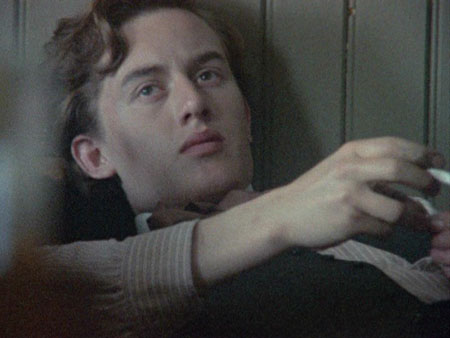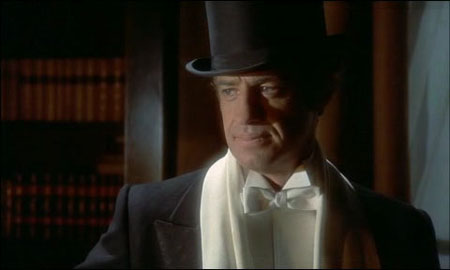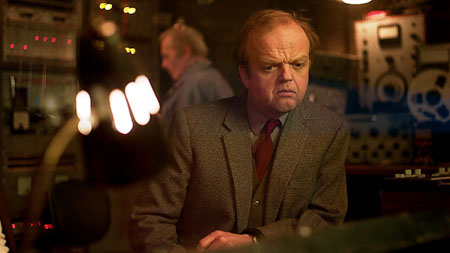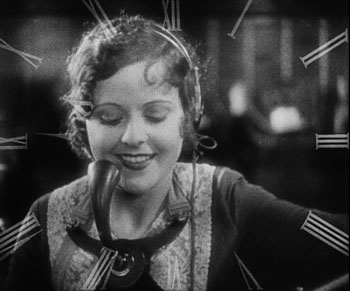In a film-by-film assessment of the work of Peter Watkins in the new issue of frieze, Jonty Claypole begins with Edvard Munch (1974): “I make arts documentaries for a living and I think this film is one of the greatest artist biopics ever made…. Watkins is, first and foremost, a political filmmaker. At the heart of his vision is a belief that television and film production should not be used as instruments of power by media professionals, but as facilitators of communication and catharsis for both participants and audience.”
Catherine Grant alerts us to a new issue of Scope and, while there’s a good handful each of film reviews and conference reports, the bulk, as always, is comprised of book reviews (a good dozen this time around) and articles, including Elena Woolley on the re-emergence of “dead cities” on screen, Tricia Jenkins and Matthew Alford on the C.I.A.’s role in Hollywood, Andrew Wormald on relatively recent “television event movies” in Germany, and Jenny Munro “examines the significance of snow in two of Alain Resnais’s later (and less widely studied) films and, as I elucidate, its use as a signifier of characters’ stasis and immobility, occasionally physical, but mainly psychological.” The films: L’Amour à mort (Love unto Death, 1984) and Cœurs (Private Fears in Public Places, 2006).
On a related note, Jonathan Rosenbaum’s posted two pieces he wrote while watching Resnais make Stavisky (1974), one for Sight & Sound, the other for Film Comment.
In other news. The Chicago International Film Festival has announced the first 22 titles (there’ll be more than 150 in all) lined up for its 48th edition (October 11 through 25).
Filmfest Hamburg, celebrating its 20th year from September 27 through October 6, will be presenting its Douglas Sirk Award to Kim Ki-duk.
Reading. “But he does everything wrong; he breaks every rule of conventional cinematic grammar.” And yet Yasujirô Ozu is certainly one of the greatest directors of all time. Thom Anderson argues the case in Sight & Sound.
For Film Comment, Amy Taubin talks with David Cronenberg about Cosmospolis.
Writing for the Film Society of Lincoln Center, Robert Koehler argues that Locarno has become one of the most important festivals on the calendar, thanks in no small part to artistic director Olivier Père: “A festival that is Europe’s second-oldest (65 years, next to Venice’s 69) now seems like one of Europe’s youngest.”
And one of the most talked about films in this year’s edition is Berberian Sound Studio; not only does the Guardian‘s Danny Leigh interview director Peter Strickland, but IFC Midnight’s picked up U.S. rights, as Jay A. Fernandez reports at indieWIRE—and the New York Film Festival‘s announced that it’ll be one of three midnight screenings during this year’s edition (September 28 through October 14). The other two: Barry Levinson’s The Bay and Takeshi Kitano’s Outrage Beyond.
“I have been watching Béla Tarr’s films for years, but never get over the central mystery of his work: How does he manage to imbue mundane images with such an otherworldly power?” Ela Bittencourt on the black dogs of Damnation (1988). Also in the new issue of Reverse Shot, Matt Connolly argues that Derek Jarman‘s Blue “is far from an exercise in pure aesthetic meditation.”
“Jonathan Chait‘s New York magazine piece, ‘The Vast Left-Wing Conspiracy Is on Your Screen,’ props up the very tired, and very dangerous, notion that the product of Hollywood is liberal,” writes Erik Lundegaard in Salon. “Here’s how you refute it: Think of almost every movie you’ve ever seen.”
DVD/Blu-ray. Sam Adams in Slate: “Like its companions in Eclipse’s new two-disc release [Maidstone and Other Films by Norman Mailer], Maidstone was conceived less as a self-contained film than an experiment in human behavior—or, less charitably, an acting exercise. Wild 90 (1968) is largely a three-hander, with Mailer and two compatriots playing Mafiosi confined to a small apartment; Beyond the Law, also released in 1968, is comprised of police interrogations taking place in a precinct house on the same night.”
J. Hoberman at Artinfo: “A casualty of the shift from movies to talkies, rediscovered and long cherished by cinephiles, Paul Fejos’s Lonesome (1928) should expand its fan base thanks to it release on DVD with the full Criterion treatment—digitally restored from archival nitrate, packaged with a 32-page booklet and a full disc of extras.”
In the works. Adan Jodorowsky, son of Alejandro, is pitching The Voice Thief, with Asia Argento, at Kickstarter.
“The Artist star Bérénice Bejo will replace Marion Cotillard in the next film from A Separation director Asghar Farhadi after scheduling conflicts forced a switch,” reports Nancy Tartaglione for Deadline. “Shooting starts in October in and around Paris on the untitled French-language picture that also stars A Prophet‘s Tahar Rahim.”
Obit. “Jerry Nelson, whose versatile talents invigorated Muppet productions for six decades through characters like The Count Von Count, Emmet Otter, and Lew Zealand, has died,” reports Erik Adams at the AV Club. “He was 78.”
For fun. “Three supernatural blaxploitation limericks comin’ atcha” from David Cairns.
For news and tips throughout the day every day, follow @KeyframeDaily on Twitter and/or the RSS feed. Get Keyframe Daily in your inbox by signing in at fandor.com/daily.







